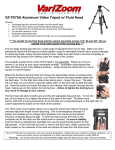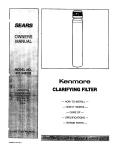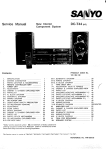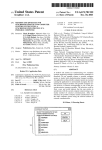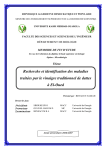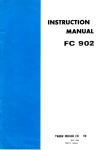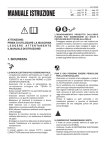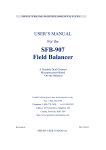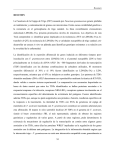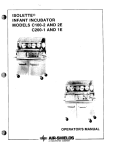Download Grace Under Pressure - University of Connecticut
Transcript
'r
-~_
~
U'WU£dl'cuC
~~~~d
The Connecticut writing Project offers opportunities for
growth and professional development to teachers of writing
in all disciplines who recognize the worth of using writing
as a means of learning any subject matter. A program of The
University of Connecticut, Department of English,
the
Connecticut writing Project is affiliated with the widelyacclaimed National writing Project, which now has 138 sites
in this country and abroad.
GRACE
UNDER
In the Project,
experienced classroom teachers are
trained as Teacher/Consultants in
an intensive Summer
Institute where they share their expertise and practice
writing themselves.
Then, during subsequent school years,
they present workshops on composition theory and practical
strategies for teaching writing to teachers in participating
districts.
PRESSURE
The
approach has
proven
effective by
generating
widespread interest in good
writing and by upgrading
students' abilities as writers and learners.
For further
information about the Connecticut Writing Project and its
programs, please write or call the director:
Mary T. Mackley
Director, CWP/Storrs
The University of Connecticut
Box U-25A
Storrs, CT 06268
(203) 486-2328 or 486-5772
or
Faye C. Gage
Director, CWP/Fairfield County
The University of Connecticut
Library Building, Room B20
Scofieldtown Road
Stamford, CT 06093
(203) 968-2213
An Anthology
by
Connecticut
Writing Project
Summer Fell ows
1985
CONTENTS
Helen
Scinto.
COAL
Garv Richardson,
Ell ie Derwin.
Bi 11
MOTHER,
Rogers.
Morse,
Heidi
Steinberg,
Susan
Garcia,
Sydney
Lynda
8
9
CONTAGIOUS
CARING
1908 ...................•....
15
20
21
THE COUNTRY
SCHOOL
A GIFT FOR A FRIEND
23
26
JOAO
27
AUNT MAMIE
33
Adam,
ADAM .........................•.....
Sorensen,
SWEET
FANTASy
Sue Pascucc r , THE SPECIAL
Libby
2
TRACES
Ogden
Pat Brown,
TREE
CLOSET
Jane McNulty,
Jane Teaze.
Noreen
TISSA'S
THE BALLERINA
McCarthv,
Vincenza
1
Rubin,
PLACE
GRANDPAP ..........•................
35
39
40
47
COAL
Helen Scinto
The heavy sound of the truck stopping in front of the
house drew my brother and me to the 1 iving room window.
Already two men had jumped down from the cab.
The driver
oulled out a silvery metal chute and headed for the yard.
He stepped easily over the small hedge, walked the
forty-some feet to the cellar window under the dining room,
and fitted the chute into the window frame.
His partner
walked to the open back of the truck, on which stood, in
neat, tight rows, the canvas bags of shiny black coal.
He
hefted one onto his shoulder and, 1 ike a drab Santa, plodded
to the chute.
Cra-swoo-.2h' The bl ack nuggets sl id down the
chute into the void.
For a second a black dust hovered in
the air, while the man trudged back to the truck for the
next bag.
Cra-swoosh'
The driver dumped in a bag.
Again
and again, robot-l ike, one coming, one going, the black men
emptied the black bags into the hungry hole.
Each cra-swoosh echoed in the house and sent a fine
black soot seeping through the wide floor boards and onto
sills and table tops.
"Where
does
it go?" my Q,-::-ther
asked.
I knew.
The coal would be pil ing up in the big square
bin near the back of the cellar.
It was a dark, forbidding
corner even without the coal -- beyond the washing machine
and set tubs, beyond the big furnace that glowed red when
the door was opened.
"Stay away from the cellar,"
Needlessly,
needlessly.
my mother
ordered.
TI SSA 'S TREE
Gary Richardson
The screen door squawked open and smashed wide agains
the porch wall.
A figure, all arms and legs and flying
braids, shot across the porch, down the steps without
touching any of them, and was around the corner of the house
before the door slammed shut again.
Tissa streaked to the foot of the large maple tree, and
with a quick glance around to see that she was unobserved,
the hopped up and grasped the lowest branch.
From here, by
walking her bare feet up the trunk, she would ease herself
over the branch and cl imb up to the crotch of the tree.
She
disappeared
into the curtain of green maple leaves above.
The branches here formed a perfect lap to perch in. The lap
of the gods, sQe'd thought when she had discovered the spot
a week ago, and she'd come here several times since to revel
in her secret place.
Once tucked away here no one could see her, yet she
could oversee the house and surrounding ya~d as well as that
of their neighbors as if from a ship's crow's nest.
She
could be Jim in Treasure Island escaping the dagger of
Israel Hand.
Sh;-~as Robin's trusted Alan a Dale waiting to
pounce on the
Sheriff of Nottingham.
Tissa took the porch pillow she had secreted here
yesterday and plumped and worried it until just the right
amount of it lay under her seat and just enough lay behind
her back to protect her from the ridges of the bark.
She
sighed contentedly
and settled back to survey her domain
before opening her book, retrieved from inside her shirt.
"Families,
what a pain'"
A week before she'd stormed from the house after a
shouting match with Carol, threatening never to return.
She'd dashed off down the road to the tree-l ined fields
beyond the houses and flung herself down, hidden by the tall
meadow grass.
She had been prepared to suffer her martyrdom
alone.
Soon, however, her anger had dissipated along with
her tears in the warm sunshine, and she had found it much
more fascinating to watch a praying mantis performing a
balancing act on a bent thistle than to nurse her grudge.
Trouble was, when she'd returned home late in the afternoon,
driven by mosquito
she'd never left.
"Carol
bites
is growing
and boredom,
stupider
the family
acted
I lke
by the day'"
When they were I ittle, Carol
conscience for her younger sister
was nurse,
Tissa.
mini-mother
and
"She even named me, for crying out loud'"
Because she
couldn't say sister, it had come out "Tissa" and "Tissa" it
staved.
Tissa chortled a I ittle over the number of times
she had made Carol's Iife a trial, Ieading her i n t o scrapes
for which she, Carol, was blamed and little sister escaped
scott-free.
Trouble was, lately Carol was so busy with her
girl friends and all their icky boy talk and secrets and
goopy make-up, she couldn't be teased.
"Oh , well,
!
youngers
I
•
who cares?
There
were al ways
the
II
Mamma had said it must be a trlal belng in the middle,
but it wasn't that bad.
As Carol's role as protectress
was
dwindl ing, Tissa herself had picked up the "youngers."
Little sister Annie and baby brother
Chris had grown to
become Tissa's loyal camp followers.
She had become not
only a protectress
as Carol had been for her, but authority.
Tissa invented the games, ordered activities.
and wrote the
olays. while they were her eager audience, slaves and
supporting cast.
It was an ideal arrangement,
no matter
what Mamma said.
Today, however, the natives had rebelled.
Annie and
Critter had shut her out of their Candyland game and had
told her off amid a good deal of shouting and ill-mannered
recrimination
on their part.
So, with head held high, book
stashed, and a hearty, "Who needs you twerps'" she had
flounced out of the house, down the porch steps, and up lnto
her hideaway.
Now, as the effects of her magnificent
exit
had begun to wear off, Tissa began to make a closer
inspection of her surroundings.
She watched a green inchworm make its horseshoe-gaited
way across a leaf.
Grandma said if you found an inchworm on
yOU, it meant it was stitching yOU a new dress.
Tissa
plucked the inchworm from the leaf -- leaves don't need new
clothes -- and put it on her wrist.
By the time the little
stitcher had reached her elbow, Tissa, bored with the
2
3
activity,
finger.
sent
it spinning
into space
with a f1 ick of her
The smell of summer roses drifted up from the lattice
by the cellar door.
Tissa could just make out a splash or
two of pink through the maple leaf screen shifting in the
warm July breeze.
A bumble-bee
lured by the sweet essence
of the roses came hurt1 ing past her perch, unmindful of the
human occupant of the tree.
A robin cocking his head,
1 istened for his dinner in the Miller's lawn next door,
hopped a few feet, 1 istened again, then tugged and tugged to
retrieve his fat worm.
Tissa sighed.
What a wonderful discovery, this secret
spot.
If she were careful, she cou1 d have this all
to
herself.
No one need know about it. She could sl ip up here
in a brief moment, and the kids would never find her.
She
could watch the world go by, be the observer and not be
observed.
What power, what fun'
She snuggled back against
her pillow once more.
Why shouldn't she have a place all
to herself?
Mamma
and Da had their own room, and when the door was shut, you
stayed out.
Ma and Da.
It sure was good to have two
oarents.
Half the kids in school had sp1 itsvi11e fami1 ies.
Mamma is so active and witty -- 1 ike Blanche Ingraham.
Tissa looked at the copy of Jane Eyre, unopened in her lap.
Not that Ma rode a horse.
There weren't too many of those
around here, but she was good at tennis.
She could be
soothing and sympathetic
when things really hurt.
And Da.
What a pal -- noisy and gruff and tossing the 1 itt1es about
when he came home from the station till they squealed with
de1lght.
He couldn't toss me around anymore.
Tissa
stretched out her long legs.
At eleven she was taller than
many of the boys in her class and could outrun and outswim
most of them.
Da always chose her to row the boat at the
lake on weekends when they drove up for picnics.
He'd tell stories of when he and his Dad went fishing,
but mostly they'd just sit in companionable
silence while he
cast for trout or bass and she trolled for anything that
happened along.
Mamma organized the picnic and the swimming
from the 1 itt1e beach.
The Millers from next door came
along, and there was much splashing and shouting.
Thank
goodness, she and Da could be way down the other end of the
lake.
Those Miller kids were brats.
No wonder Mrs. Miller
had those awful headaches lately and stayed home.
Mamma
dldn't mind, though.
She packed up extra sandwiches and
lemonade.
And Mr. Miller was a good sport.
He helped with
the picnic and stayed to teach the 1 ittle kids to swim.
He's kind of good-looking.
thought Tissa, 1 ike Mr.
Rochester.
No wonder Jane Eyre was fall ing in love.
All
that sadness and shadow.
Tissa watched through half-closed
1 ids the sun-dappled
leaves weave soft ripples of green 1 ight.
Now she was in
the shallows of the lagoon.
Mafatu, brave lslander, her
knife clenched in her teeth, ready to battle the shark.
Glancing down, she watched the shark's shaggy black back and
wagging tail wander beneath her tree In search of the
neighbor's cat.
Even Pepper seemed unaware of her presence
above.
She smiled a satisfied smile and opened her place In
the book.
But soon even :JilJJ~_gy.r:~" pal ed before the novel ty
of her situation.
She stopped reading to concentrate
on the
tiny spots of 1 ight dotting the poage.
They were thrown by
the sunl ight shafting through the worm holes in the leaves
dlrectly above.
Da had said during an ecllpse these sun
freckles imitated the exact shape of the shadow of the moon
on the sun, becoming more and more covered until finally
thev were all shadow as the ecl ipse progressed.
She must
trv that durlng the next ecl ipse.
Tissa yawned.
That
probablv wasn't for years.
She turned the page and once
more became immersed in her book.
Poor Jane.
What would
become of her':>
It must have been a half hour later when Tissa slowly
became aware of voices other than Jane and Mr. Rochester.
Soft voices. being-quiet-on-purpose
voices.
A woman's,
"Rich, don't.
Someone will see us.
Let me go'"
And a
man's, "How can I':> Now that we have this, how can I let you
go?!!
It was Mr. Miller.
Why was he home so early':> Mrs.
Miller and the kids had left for their Grandmother's
at the
Jersey shore three days ago.
She had felt tired agaln,
Mamma said, and thought the change would do them all good.
Yet the voices were certainly coming from the Mlller bac~
porch. hidden now in shadow.
Ti ssa leaned forward.
"Rich.
I mean it, not here'"
The woman broke from Mr. Mlller and"
from the dark shadow of the awn1ng.
Her figure was caught
just for a brief second 1n the bright sunl ight before
sl ipoing quickly into the house.
Tissa shrank back against the tree trunk and pressed
her face into the rough bark unti 1 it hurt.
She went ir:::
cold in the suddenly suffocating
air.
The green leaf waves
4
5
seemed to crash over her.
with a secret of its own.
"Mamma,"
she whispered.
Her secret
world
"Gh, Mamma
had betrayed
her
THE BALLERINA
Ell ie Derwin
-- no."
The fluidity of her movement on stage
to the oresent.
Her sautes were graceful,
accentuating
the suppleness of her slender
completed the final movement of Act I, the
for intermlssion.
brought me back
03.1 ways
body.
As she
curtain closed
Walking toward the lobby, my friend Bob spoke to me,
h is face joyful, h is voice enthusiast i c , "That 1ast part was
magn if icent," he said.
"Wasn't she just 1 ike a deer
caressing the forest'
She truly is a fine artist."
We contInued to walk toward the fountain for some fresh
air when the fl ickering 1ights reminded us it was already
time to return to the auditorlum for the second half of the
performance.
"Maam, may I see your tlcket?" the gentleman at the
entrance sternly asked.
Muttering to myself as I fumbled
through my purse, I finally produced the desired Item.
"Open your purse," he demanded as he had done at the
beginning of the performance.
Once agaIn I could feel the
anxletv wlthln me.
I quickly opened my evening bag and
looked at Bob with now angry eyes as I felt the second
lntruslon of prlvacy In the same eveninq.
What was the
purpose of the guards checkIng our purses and then lInIng
the staqe before the performance~
(Tenslon was felt
throughout the auditorium then and was beglnnlng agaln.)
[lld they e;-:pectCastro to arrlve In a "tutu," h i s gun In
hand, ready to annlhllate the ideals of democracy
In a
moment's notlCe"
"Well, It's been twenty years since she
and from t.he number of securit.y guarding the
WIll probably be another twenty years before
return," Bob se i d to me as we wal ted for the
rIse.
"DId vou ask Ms. Al ansa ,~bout t.his when
was here last.
Opera House, It
they let her
cu•..
-t a i n to
you
Inter"viewE'd
her?"
"Yes, I can still see her.
I had Just asked her why
she hadn't performed in the Unlted States In so long.
She
was gettIng up from her chair and stIffened as I a5ked t.he
6
7
question.
My heart stopped .. She turned in my direction
removing her sun glasses.
Llke a child, I immediately
focused-on her eyes, only to feel shame for having done so.'
"'Why haven't I performed here for the past twenty
years,' you ask.
Quite simply, pol itics, my dear."
8
CLOSET
Bill McCarthy
(Playing on the stereobox is Paul
"I am a Rock."
Davis is
cleaning out a clothes closet in the
back of his classroom.
He takes out
two boxes of books and carries them to
another cabinet.
There is still a lot
of rubble at the bottom, a backpacking
boot, a track uniform, a couple of
paper balls left over from a classroom
free-far-all,
a mol dy sandwich in a
zip-lock bag, a poster of Shakespeare,
a brassiere
(which he holds up), a few
paperbacks, a couple of pencils, gum
wrappers, and a condom (which he holds
up).
He looks amused.
He throws all
of the junk into a trash can, then
gets a screwdriver
out of his desk and
gets into the closet to fix a shaky
shelf overhead.
Roberta walks into
the classroom.
The conversation
is
awkward, uncomfortable
at first.)
Simon's
Roberta:
Here you are.
you're hiding.
I never
know where
Davis:
Came in here to grade papers.
Too many
interruptions
in the Engl ish Office.
As you can see, I've gotten a lot done,
but no papers.
This closet has seen
some action (he holds up the bra and
condom) .
Roberta:
I always suspected
ah , lover.
Davis:
(He picks up an L-shaped shelf bracket
and begins screwing it to brace the
shelf.)
A lover of closets, that is.
You're right.
Look at me here,
screwing in the closet.
That makes you
a voyeur.
Roberta:
Pretty
you were a closet ...
bad.
9
Davis:
Roberta:
Davis:
You started it. Anyway, it's almost
time I came out of the closet.
Roberta:
I need the credits.
I'll stay.
Sounds
mercenary, but I need to graduate.
I
won't inf1 ict myself too badly on your
students.
I'll do what I can.
(Kiddingly)
I'll even give homework.
(He smiles.)
Also, I want to stay
because .
. Hey, you teach f i1m .
. this is the tender scene where .
you have some other tapes?
(Davis
nods.)
Put on something c1asica1 , soft
though (he puts on the fourth movement
of Beethoven's
Serenade in D Major) .
Yeah, that's good.
. Now, we're in
this mess together, and I've fucked up,
but you're a kind-hearted
old man.
I can't do tears, but I can get my
voice to quaver, and since you're the
aloof type I make the first move and.
(her eyes well up with a few tears)
there, I've bit the inside of my cheek,
and you, sympathetic
protective type,
put your arm around me in a clumsy,
awkward way, and I take advantage of
you by first resting my head against
your shoulder, and then (kissing him)
kissing you full on the 1 ips.
Davis:
(He gasps.)
Roberta:
You're right.
You ~
a film
teacher.
Someone always comes in, in
films.
We'll get in the closet.
Come
on (she grabs his tie, hauls him behind
her) .
Davis:
The closet?
Roberta:
Sure.
We'll add a 1 itt1e farce to the
love scene.
You don't think anyone
will come in there?
Davis:
No, but.
Roberta:
After you.
(She opens door, motions
for him to gO in. She closes the door,
they kiss, she aggressively,
he timidly
and much abashed by her -- a reversal
True.
(She changes tone.)
I'm sorry
I made such a scene.
I can't bel ieve
did that.
And, you're right.
I am a
lousy teacher.
didn't
say that.
Roberta:
I know, I know,
comes down to.
but that's
And you're
what it
right.
Davis:
Wait a second.
Wait one second.
Roberta:
(A 1 itt1e heated1v)
No,-You wait'
(Then quietly)
Hear me out.
Since
the first grade, no,kindergarten,
nur-s er-v school, teachers have been
tell ing me I've got a wonderful
personal ity, bright.
One said I
reminded her of Liza Mine11 i, 9ut, in
matters of organization,
conscientiousness,
seeing the whole
thing through
.you know what I
mean.
I can put on a good show, but.
Dav is:
But if you
Roberta:
Undergo a dramatic personal ity change,
wake up one morning and discover .
All through school I got by by reading
everything the night before, writing
the single draft paper on the
typewriter.
. I can't do what you do.
wake up at six, eat breakfast.
you do eat breakfast every day, right?
(He nods.)
Teach what you're prepared
to teach, thought about, cared about .
. I should be a blues singer.
.
Davis:
You shouldn't
give up so easily.
Roberta:
Wouldn't you?
How long would it take
you to see blues singing isn't what
~~
made for.
Davis:
You're
quitting?
Someone
10
11
might
come
in.
of old Hollywood films.)
good ... taste wel I?
You taste
Ira v i s:
Good.
(They kiss again, she
lnltlatlng, he reclprocatlng.)
Roberta:
Let's stay here all afternoon.
have anythlng doing?
[Iavls:
Track practlce at three.
start wlthout me.
Fcober-t a r
Tlme to SllP over to your apartment
somethlng less vertlcal?
DdVl~.i
Never on the flrst
you thlnk of me?
:
date.
Sounds
No, not here.
Nancy:
I want to come.
Davis:
It's Nancy Thistle.
(Quizzically)
just dreamed of them.
Nancy:
Let's go in the closet.
(Davis looks
terrified for a moment then tries a
variety of faces and positions with
which to greet Nancy and Harvey.)
(Her
voice right outside door)
Dh, come on,
Harvey.
I'm awfully horny today.
When
you're horny we do it on the grocery
I ine in Stop and Shop.
Now it's a
different story.
(Roberta starts to
giggle to herself.)
Harv:
Not here.
I've been caught in school
before and it's rather embarrassing.
Let's go to your place.
Nancy:
You're getting old and boring,
How 'bout in the boiler room?
a key.
Harv:
Why not in Milton's office, for God's
sake.
You want to get us fired?
Nancy:
He'd have forgotten it by tomorrow
anyway.
All right, my apartment.
not in bed.
And no missionary.
(Roberta al most hysterical.)
You
But they'll
for
What would
fiobert.d: I'd lose al I respect.
Thlnk you were
,lust another trampy Engl lsh Department
Chalrman.
[lavlS:
Harv:
might
come.
good.
r,otler'ta: Well ':,
DavIS:
Someone
Good.
"Good" modlfles the i mp l reo ''It''
In the sentence:
"It," i n brackets,
sounds good.
Thus, you use the
ad.ie c t i va "good," rio t the adver'b
"well
Harvey.
I've got
But
Rober'ta:
Good.
Let's go.
(The classroom door
opens.
They tr'eeze.) (Whlspered) Who
1 s 1 t?
Davis:
Ssh.
Can't. tell.
Cust.()dlan~" (They
hear moanlng, klssing.)
Harv:
Fire escape
Nancy:
Let's
Nancy:
Dh, Harveykins.
Harv:
Davls:
Dld she say Harveyklns?
Ever since I lent you Joy of Sex
you've just been impossible.
(They
leave.)
Roberta:
That's
Davis:
[lavIS:
No tell Ing.
Not a student.
say Harveyklns.
(Roberta bursts out in hysterics.)
-- they may come back.
Roberta:
That was "awesome."
Dh, come on,
Harvey.
(She looks into Davis's eyes.)
I'm awfutly horny today.
what
I heard.
Who
is
I'she ?
ll
ok?
go, Mr.
Imagination.
Ssh
Thev don't
12
13
CONTAGIOUS CARING
Vincenza Jane McNulty
Davis:
All right,
my apartment.
Roberta:
On the fire escape?
them as we come.
We can wave to
Davis:
I'll go home first.
ten minutes.
You follow
Roberta:
Too soon.
Make it an hour.
Or three.
You are nervous.
Is it your first
time?
Davis:
When you
Roberta:
I'll wrap myself up in a package and
send myself UPS.
See you in three
days.
Go, already!
Bye-bye,
Tommykins.
(She gooses him.)
Sl ip
into something more comfortable.
in
1ive in a dorm.
"Hello," she said with the warmest
Louise.
What's yours?"
"Jane,"
I said quietly.
"Follow
me please."
smile.
"My name
is
As I walked slowly behind this nurse my mind began to
wander.
Why was I so fearful?
Anesthesia?
That's what
worried me.
I kept thinking that I had been through it
before and each experience was worse than the preceding one.
It took me longer and longer to regain consciousness.
What
would happen this time?
Little did I know that today's
operation would be one of the most positive experiences
have yet to have, all because of the competent medical
staff, especially Louise.
From the moment Peter and I entered the ambulatory
surgery center, there was something special and different
about this place.
The contemporary
decor accented in a
mauve and pink color scheme was bright and cheery.
There
were positive vibrations
in the air.
They seemed to say,
"Have no fear.
Everything will be okay."
Louise, middle-aged
and of average height, led me to
the dressing area.
Her caring smile and quick and 1 ive1y
gait continued to keep me somewhat at ease.
The nursing
profession would do well to clone her for the qual ities of
competence,
compassion,
congenial ity, and professional ism.
She is 1 ike a butterfly fl itting from one flower to the
next, taking essential food and carrying away pollen on its
feet to spread nature's beauty.
I shed my street clothes and donned surgical garb.
Louise conversed pleasantly as she took my vital signs and
medical history.
Even her uniform was my favorite color,
pink.
It blended perfectly with her amiable smile and
friendly personal ity.
Louise's
keen eye noticed
something
was the matter
me.
"What's
14
wrong,"
she asked.
15
"You look a bit pale."
with
"I'm quite
fast."
hungry
and weak because
of the required
"I know just what you mean, Jane.
I'm a breakfast
person, too.
Don't worry, when you wake up and feel 1 ike
eat ing, we wi 11 feed you well."
I relaxed a 1 ittle more and thought how fortunate for
her patients that Louise knew just the right things to say
and her timing was perfect.
No wonder her calmness was
contagious; her tender touch was so comforting.
Once more Louise
"What's
observed
on vour- mind?"
my anxious
When the nurses were sure my condition was stable they
let me rest.
I lapsed in and out of wakefulness
and talked
quietly with my hubby.
Periodically
Louise would return to
check on my progress.
"How are you doing,
I was still
face.
pretty
.Jane?"
tired
and gave a faint
reply,
1I0kay.1I
she asked.
"Oh, I'm a 1 ittle nervous
blood pressure f r-e quen t 1y . They had placed ox ygen tubes
under my nose to help me come to faster.
Fortunately,
I
felt very 1 ittle pain, only discomfort.
as I take so long to wake
LOllise added,
do ing .lust--.:f..i!l§.. "
"Ok ay under
the circumstances.
You r-e
r
up. II
fears
"When the anesthesiologist
and your past experiences.
talks to you,discuss your
He'll know what to do."
That is what I did during the prep
again some of the tension was rel ieved.
interview.
Once
Finally the moment for my trip to the operating room
had arrived.
Peter kissed me,tell ing me he loved me.
At
Louise's instructions,
I put on my "party hat," technically
known as a surgical cap.
The pat from her caring hand was
so reassuring.
Because I was so weak and unsteady from lack
of food, I was wheeled into the sterile room.
The cold
temperature made me more uncomfortable.
In a moment I heard my doctor say, "Ready for a short
nap?"
Then, with a nod, the anesthetic was administered
through the intravenous tube in my arm.
It quickly took
effect.
I felt the room begin to spin and I lost control of
consc iOllsness .
Vaguely I remember the anesthetist
and Louise call ing
my name in an effort to wake me up.
I drifted in and out of
consciousness.
I was reluctant to try too hard to wake up.
It took a lot of effort and strength which I didn't have
right now.
When I awoke, still groggy, I was in the recovery area.
Everything was fuzzy and hazy.
Peter was at my side
smil ing.
Louise and another nurse, Mary Ann, checked my
She had been working since the early morning hours
her mood was cheery and congenial yet very professional.
but
"Well, you seem to be coming around.
Do you think
you're strong enough to move to a recl iner chair?"
III
guess
so."
"I r 11 he 1p you."
Louise guided me to the next station and offered me
some 1 iquid nourishment.
The ginger ale tasted so good.
was tempted to guzzle it down but knew that was unwise at
this time.
Slowly I regained my strength and coherence.
Louise returned with a del icious turkey sandwich and oatmeal
cookie and more friendly hospital ity.
Food at last'
Louise
even inquired if Peter was hungry.
She thought of everyone
and everything.
"You pol ished that off pretty
another?"
"No, thank
vou
v
well.
Woul d you 1ike
"
"I can tell vou enjoy
eat ing.
You're
looking
better."
Now that Louise knew my queasy stomach was somewhat
settled, she offered to help me get dressed.
We carried
that ritual carefully.
"You'll
be going
home soon."
16
17
out
Although I was happy that the procedure had gone well
and I was on the mend, I knew it would be hard to say
good-bye and adequately express our gratitude to the medical
personnel for the excellent care I had received.
Peter and
I were very impressed with the technical expertise,
well-groomed
efficiency and humaneness of this hospital
unit.
Hospitals can be good places to be where you meet
some of the nicest people.
Louise, in particular,
is
someone unforgettable.
Florence Nightengale move over.
Louise the lark is here to stay, a credit to nurses
everywhere.
MOTHER, 1908
Jane Teaze
In the family photograph
outside the Vermont homestead
you stand, glancing sidewaysshifted sl ightly away from the other four
staring directly at the camera,
their faces serious and set, arranged in
still life.
Scolded for keeping the family waiting,
a puckery smile keeps you from crying.
Earl ier that morning, you'd been warned to stay
neat,
The picture taking was all planned.
"5i t in the front parlor, Ethel.
And stay tidy.
Don't you skip out down the road."
But you did, you sidled out across the back
porch,
past the pump and down the road to the Higginses.
Did you want to show them the puffy ribbon tying
back your smooth-combed
auburn hair?
Twirl around in your plaid dress?
Did they tell you how pretty you looked,
all ready for the photographer?
What with the whirl ing around, you never heard
them call ing
from the farm, "Ethel 11
Where's that
girl?"
They waited, picture all composed but you.
Your grandmother,
Mary Jane, in white starched
blouse with voluminous sleeves,
stares at the camera, unperturbed
by her
granddaughter's
deviation,
sits in the center on a chair brought from the
house.
She's seen many cameras like this one, no doubt,
has posed with many of her nine children.
But your mother, also Mary Jane, worn out by
three, barely avoids a 1 ittle frown,
"Where's that Ethel?
Why's she not here?"
Both women wear white blouses, collars shrugging
up around their chins,
How hard it must have been to iron all those
ruffled pleats,
heavy puffs of cotton, hot, prescribed.
Women's authority in those white blouses.
I
18
19
Their faces show New England firmness.
i~~~q Howard stands next to his grandma's chair,
subdued and proper, dark pants, dark shirt, small
tie, the comb marks still in his wet
hair.
And before him, little Hilda, a huge morningglory bow tying up her blonde curls,
stands perfect,
waiting, still as her doll in its
wicker carraige.
Then Ethel races home, they chide her, she sl ides
towards the group,
but not in the group, a bit of distance sets her
off,
as if they've said, "Now, now, you would go
running off,
you stand there, missy, and think
about it."
I love it that you ran away to play'
You brought back 1 ife into the family pose,
Your heart pounding, dress billowing out above
its low-slung belt,
Whisps of untidy hair escape their clasp,
stocking twisted,
a rea1-1 ife guilty smile
More 1 ife in you than in their fixed and formal
faces.
I revel in your disarray'
This torn and fading photo, vintage memory of a
younger day.
TRACES
Noreen Rogers
The dark hallway,
Like a tunnel,
Led to the kitchen
Big as a bakery,
Filled with the aromas
of cinnamon, apples"
and memories
And your rocker.
You were always
In the kitchen
When we came,
rocking in that chair
beside the huge, black
And smiling.
range
I see you now,
Looking 1 ike everybody's
Image of a grandma -a Norman Rockwell subject:
round, aproned;
your rim1ess half-glasses
resting against
pink, Santa cheeks
And your eyes,
my father's eyes,
beaut iful , auburn
deer eyes.
Most of all
I loved your hair,
Piled in a spiral-l ike a bun,
A soft crown.
I loved to watch you brush
The still-chestnut
strands,
long and glossy,
1 ike a horse's tail.
Then, head down,
You'd twist it up
And fasten it
with a tortoise shell
comb.
Your house
had a
20
21
--
Wraparound porch
And stretched
Front to back,
A series of
single rooms
and that
tunnel.
THE COUNTRY SCHOOL
Ogden Morse
I
,f
But the house is gone now;
No trace remains.
And you're gone, too,
Grandma ...
But the traces of you
Remain.
I now hold in my hand
The tortoise shell comb,
And I look again at
your eyes,
my father's eyes,
my daughter's eyes,
now my grandson's eyes
Beautiful auburn
Deer eyes.
My father was a teacher who 1 iked to garden.
So when
he took a new job in 1944, our family moved from Teaneck,
New Jersey, to South Hampton, New Hampshire.
It was a
promising move, promising dogs and cats and open fields,
blueberries,
hunting and fishing.
Not that I didn't 1 ike
New Jersey.
We had close neighbors, parks, and pl~ying
fields, railroad tracks, and Queen Anne's Highway, where, it
was rumored, 1 ittle boys who did not look both ways before
crossing the street sometimes got run over, although I never
saw it happen.
But New Hampshire was where my grandparents
1 ived and where we had spent our summers.
As I remember,
the days were always hot and bright and long, filled with
peaches, hay, and mosquitoes.
So there we were, in a small farmhouse, with a mowing
machine at the back door and a bathtub on the front lawn.
We eventually had the tub installed, but we never did have a
shower.
And my grandfather built a bedroom for my brother
and me right over the kitchen, complete with a secret
compartment
in the bookcase where we could hide important
forgettables.
Then it was September and time for school.
Now here
was a challenge about which I had been nervous for some
time.
I had seen Barnard School, a two-story structure with
grades one through four downstairs and five through eight
upstairs, where I was entering the fifth grade.
There was a
hard-packed playground and a hand pump out front.
And,
although I didn't know it then, there was no running water
or central heat.
Instead, drinking water was suppl ied by
one of the older boys, clearly chosen for physical strength,
who carried a bucket from the pump, upstairs to an
earthenware jug which he filled.
Each room also had a wood
stove on which we dried our mittens and mackinaws after
playing in the snow.
So the afternoons were filled with the
oder of wet wool, and, if Howie Whittier had been working in
the barn, cows.
This latter aroma occurred despite our
efforts to keep Howie, a fifth grader whose father owned a
dairy farm, from putting his boots too close to the stove.
t
But more importantly,
I had seen some of the other
kids.
They were big, especially those eighth graders.
They
were tough, wearing dungarees and flannel shirts even to
'I
22
23
school.
So it was with some real misgivings
approached the first day.
that
I
My fears increased when my mother dressed the two of us
in navy blue shorts, knee socks, and white shirts,
traditional attire in New Jersey.
"I don't
think
this
"Now don't you worry
is quite
about
"But, Ma, no one wears
right,
a thing,
clothes
Ma."
boys."
1 ike this'"
"You look very nice," said my mother, pushing us into
the car.
I was dubious.
In matters of real importance a
mother's eyesight is rarely 20/20.
When we arrived at the school, about thirty chi 1dren of
various ages were mill ing around the yard.
Larry and I
tentatively walked forward until we were in the center of
the group which gradually formed a ring around us.
No one
spoke.
They just looked.
Clearly we had arrived from
another planet, and the assimilation process would take some
time.
Then a teacher appeared on the steps and rang a bell.
We formed into 1 ines and marched into the building.
shifted in my seat, and tried to think of something else.
Frankly, I was terrified!
But I received the obligatory·
permission,
pulled on my jacket and mittens, and followed my
nose to "The Boys' Room."
Oh, horror of horrors, it ws dark
in there.
So if I closed the door, I couldn't see.
And if
I didn't close the door, I could be seen.
The wind blew, the snow hissed, and I had to gO
something awful.
Now a further comp1 ication.
I couldn't
unzip with my mittens on'
I took off my mittens and put
them beside a hole into which I stared.
There, four miles
below, was a Stygian blackness so cold and foreboding that
my hands trembled.
With a sudden twitch, I knocked one of
the mittens into that hole.
It landed on the oily surface.
And then a reaction occurred, so monstrous and frightening
that I gasped and shrank back.
Fizzing and whizzing and
bubb1 ing and whirring that mitten was being consumed before
my eyes.
I b1 inked once, and by God, it was gone.
I know the same fate awaited me were I to lose my
balance.
I grabbed my other mitten and ran, and never once
during the next three years did I even contemplating
returning.
At home the next day the process began allover
again.
But this time when my mother had 1eft LIS at school, we knew
something had to be done.
Not only were our pants too
short, but we had forgotten the twenty-five cents necesssary
to buy Our Weekly Reade~.
We conferred briefly and then
walked three miles to my grandfather's
house where we
arrived moaning about never returning to school.
My
grandfather swore and said, "Those boys need some long
pants," and we were whisked to Fuller's Men's Store.
Larry
got brown, and I got blue, and they itched 1 ike mad, but our
1 ives acquired a whole new outlook.
And 1 ife would have been perfect except that between
8:30 and 3:jO on school days I usually had to go to the
bathroom.
Since there was no running water, there were two
chemical toilets attached to the back of the school.
In
order to get there, you walked along a latticed passage, thE
wind and snow blowing through it. And I never intended to
make that trip.
One particularly
cold day, howwever,
crisis that offered no other solution.
24
I exp er t enc ed
crossed
a
my legs,
25
']OAO
Susan Garcia
A GIFT FOR A FRIEND
Heidi Steinberg
In the heat of the tropical Brazil ian sun, the
mountainside
slum of Vidigal appeared almost deserted.
Inside the closely crowded shanties, clumsily built with
scavenged remnants from construction
sites or from the trash
heap at the mountain's base, the slum's inhabitants -- the
favelados -- dozed.
Only a few restless children and the
patro,;~ of Edson's bar stirred.
.
I am looking for you, Donna
whose gypsy spirit
I almost lost
forever ...to Distance,
then to Death.
I am looking for you
in the wild reeds
tamed to embrace a circle,
the straw basket
you sent from Zaire.
.]oao stood outside the shack of his friend Ze.
While
waiting for Ze to give the bottle to his baby brother, .]oao
stared at the nearby mountain of Corcovado with its towering
statue of Christ -- the statue's outstretched
arms not quite
reaching Vidigal.
"Is God really a Brazilian?" he wondered.
He had heard people say that.
My thoughts creep in and out,
over and under
the spiral of straw,
burrowing down deep
into the pattern.
Ze pushed aside the burlap fragment which served as the
door to his house and sat down on the cement block step.
"Que calor'
What heat'" he muttered.
He watched .]oao
qu i zz icall y.
"What are you look ing at':'''
I discover our wholeness.
You return from the jungle,
fragile and thin.
I am speechless,
joyful.
"Oh, nothing."
Brazil ian?"
"You're
Gently, I hug you to say:
My 1 ife is entwined with yours,
no matter the distance.
My soul will know
when you daydream or sigh.
.]oao paused.
"Ze, do you think
God's
loco, .]oao, I swear."
Joao suddenly felt childish in front of his older
friend.
"1 was just thinking about; what somebody said."
Turning to Ze he asked, "Can you leave Paul inho?"
"Yeah, he's asleep
heap,
now.
Let's
go'"
As they started down the mountain side to the trash
Ze suddenly nudged .Joao. "Hey, look who's coming."
Dona Zel ia, shapeless in the tent-l ike dress which hung
to her feet, lumbered up the worn pathway.
A brood of
children, in various stages of dirt cover, noiselessly
followed behind.
"MeLI Deus,
she's ugly'"
"At least your eyesight
exclaimed
is working."
27
26
Joao.
"Where does she go every
"To the streets,"
out of his way.
liTo
belongings become "community property."
He had opted for
the pain of giving it up over the pain of trying to keep it.
day?"
Ze repl ied, kicking
a broken
bottle
beg?"
"Yeah, to beg."
"She take all those
her.
while
kids?"
"Sure -- that's how she makes people feel sorry
She sits on the sidewalk with the baby sucking
the others crowd around her."
"And people
for
her tit
give her money?"
"Sometimes.
She maks the kids hold out their hands
when someone walks by.
If they don't, she beats them."
all she knows
"Would you ever beg,
"I don't
eat ...
know.
could
if I didn't
have anythlng
to
Joao thought for a moment.
he offer Ze?
He owned
I've got that
nothing.
What
" 1'1 1 carry
answered.
YOLlr water can up the hill," he finally
"And if you don't do it, you'll carry mine."
11
"Well,
I never
woul d.
I'd rather
"Now, for sure I'll do it!" Ze countered, feeling the
weight of the five gallon tin fashioned from an old cooking
oil container.
die first'"
Hunger gnawed at Joao and Ze as they rummaged the trash
heap.
They had long ago accepted the pangs as a natural
part of 1 ife and didn't know that the people in the
apartments where their mother worked never knew a similar
discomfort.
"Hey, Ze," Joao suddenl y shouted.
"Take a look."
held up an old wheel from a baby carriage.
noted
Although he bought his pigna from questionable
sources
none refused it because it was cheap and its fire kept dead'
men al ive a 1ittle bit longer.
The faces leaning against
the counter top at Edson's never changed though the bodies
did.
Both Ze and Joao had been warned by their mothers to
stay away from there.
how to do."
Ze?"
I guess
"I bet ya can't roll it all the way from the water
barrel by my house to Edson's bar'· Joao challenged.
Edson's bar, found halfway down the hill, was not much more
than a stand which could be closed up whenever Edson chose
to do so.
Edson ran a numbers game and a few other
activities outside the law.
"Who says I can't?
I'll bet you anything
can.
What will you give me if I do?"
"Why'd she have so many babies?"
"Mamae says that's
As if the heat had sidestepped them, the boys ran to
the top of the hill eager to start their game.
The last
time, Ze had beaten Joao six times to two.
Hel
"Maybe you're not so loco after all," Ze said as he
the rim which was still perfectly round.
It was a moment of good fortune.
Next to soccer, their
favorite pastime was taking a stick and seeing who could
roll a wheel the greatest distance.
Joao had had a wheel
1 ike this before, but when one's small in the favela, his
"Not a chance'" said .Jo.ao , hoping he was right.
It was
long way up the hill from the water pipe, and the heavy can
was difficult to balance on hs head.
Many times he had
dropped it and had to return for more water.
As the oldest
child in his family, Joao at ten had to fetch water for his
mother once each day.
"Por favor, Pai do Santo," he
secretly prayed.
"Don't make me carry it twice today."
Ze found a stick and stuck it inside the rim near
top spoke.
Slowly he started the wheel on its downward
path.
He watched carefully for objects and gull ies in
road which would cause the wheel to tumble.
He ignored
Joao's jeers and concentrated
on balancing the wheel.
one house remained for him to pass before reaching his
29
28
the
the
Just
goal.
Joao, running along side, almost forgot he wanted Ze to
lose.
Neither one had ever rolled the wheel this far
before.
Ze 1 ifted his eyes a second to see how much further
to Edson's.
The brief moment of inattentiton caused him to
miss seeing a stone on the path.
The wheel hit it and fell.
Ze confidently challenged Jaoa.
"Let's double the bet.
If you do it, I'll carry your can for two days, but if you
lose ..."
Joao's mother never came home until the dinner had been
served and the kitchen c1 eaned.
Something was wrong.
Joa"o
ran to find out what, leaving Ze near the bar.
When he reached his mother, Joao could see that she was
crying.
Her walk was very slow, and for the first time he
real ized how severely she limped.
His eyes fell to her foot
grotesquely
swollen from an open sore.
"Mamae,
Joao had never rolled
from which Senhor Costello
electricity -- electricity
the wheel further than the past
attached the 1 ines for his stolen
he sold to the few who could pay
what's
wrong?"
His mother
just shook "her head.
He took a bag from her and silently walked along side
of her.
When he passed Ze, neither spoke.
Ze just picked
up the wheel and walked towards his house.
for it.
"Well, get ready
to carry,"
he snapped.
The boys returned to the open container used to catch
rain.
Joao splashed some water on his face, sweaty from the
hot afternoon sun.
He glanced up at Ze and wished he could
think of a reason not to do it.
"Come on ch icken,
1et' s gO'"
Ze taunted.
Joao started down the hill more hesitantly than Ze had.
The wheel wobbled for a few minutes and then seemed to
straighten itself up.
It picked up speed.
Joao's heart
pounded as he passed the post.
Carefully he swerved to miss
a discarded can in his path.
Then he saw the rut.
He
should have stayed to the left.
His grip tightened on the
stick.
The rut ...the wheel leaned sl ight1y ..."P1ease don't
fall'
Please don't fall'" he begged silently.
The wheel
continued on.
He could hear the cheers of the men drinking
cachaca.
He passed them.
Bringing the wheel to a stop on
the other side of the bar, he turned triumphantly
to Ze.
I'll beat you tomorrow,"
"Ah, you were just lucky.
Ze
said.
"Yeah, "only if I show you how," Joao rep1 ied.
way, you'd better get the water can."
said when they
be coming
crumpled
When Joao returned with Carl inhos, his mother was lying
down on the one bed in the room.
She didn't even look up at
the baby.
Joao set him down on the bed beside her and then
sat on his mattress on the floor.
"Dona Geri doesn't want me in her house anymore.
She's
afraid of my foot.
She says she doesn't want me to touch
anything in her house ... Oh, .loao, I never felt so dirty'"
.loao had never met Dona Geri even though his mother had
worked for her for three years.
She was an estrangeira
and
his mother was afraid of the questions she would ask if'she
saw him, questions her own people never asked.
"Howald
are
vou?
What grade are you in?
You're ten and you don't go to
school?"
It was easier to pretend .loao didn't exist.
"But, Mamae, didn't yout tell her your foot will get
better?
The medicine, Mamae, the medicine the old lady gave
you.
Didn't you show her?"
"By the
Suddenly Joao noticed his mother coming up the path.
"Hey, isn't your mother home early?" asked Ze who also
noticed her.
30
"Get the baby, Joao," his mother finally
reached the door.
"Tell Dona Marisa he won't
back.
Give her this."
She handed Joao three
bill s.
"No, Joao.
"Can't
was sick."
The medicine
isn't working."
you gO to the doctor?
Ze's mother
went when she
"And pay him with what, meu fi1ho?
We don't even have
money for milk for Carl inhos when that can is empty."
She
pOlnted to the container of Leite Gloria on the shelf.
31
As his mother's words settled upon him, Joao lookt"edf
his house
at the barrel of wa er or
around the one r~om of t the sto~e fueled by kerosene next
drinklng and coo lng, a
multi- urpose basin
to the wooden"chOP~lng
boabr~h"a~ ;~~ carrYi~g clothes to the
used for rlnSlng dlshes,
a
ln
"He
t f th hill for laundering at the water plpe.
~~~ke~ at :he shelf which held their supply ~: f~~d:ice, two
Carlinho's half-filled cankof mll"~'a~~ ~~e:sso~tment
of jars
onions, ~ container of coo lng 01
al
flour and a
and boxes containing beans, manlOC, corn m~
little sugar.
A cold fear penetrated the
ea .
t
"Mamae,
what will we do?"
His mother roll ed over and faced
the streets, Joao ... "
"YOLI mean 1 ike Dona
There was silence.
1ike Dona Zel ia."
the wall.
"Go out on
Zel ia?"
Then softly
she answered,
"Yes,
AUNT MAMIE
Pat Brown
She was "Aunt Mamie" to the rag-tag group of kids on
Ludlowe Street.
With four children of her own, she found
that her corner house became the natural rendevous for the
nelghborhood.
Beyond the simple fact of logistics, the kids
real ized that this short, stocky, red-headed
Irishwoman was
a klndred spirit.
Her muscular arms and strong, red,
gnarled hands developed by years of housework could hurl a
baseball w1th almost professional
grace and speed or gentle
down the train of wounded dogs, cats, and even racing
p1geons WhlCh were brought to her in total confidence that
she had the knack.
"Don't worry, Aunt Mamie'll fix it."
And often she dld.
Baseball was the key I lnk.
She was mad for it. Often
ln the dog days of July and August, Edna would walk into the
house and find a note on the kitchen table that commanded
her to hurr1edly eat her supper, grab her mitt, and run down
to the empty lot by the dike because her mother was coaching
the "South End Royals" agaln.
The best of these tlmes was
surely the occas1onal exped1tlons
to Ebbets Field to root
for the Brooklyn Dodgers.
What a mad scramble would break
out for the precious spots in Uncle Pewees's open touring
car.
Then Mamie needed al I her skill as an eng1neer to pack
suppl ies and small bod1es into every ava1lable space.
"Cramped?
No, there's st111 space fpr one more."
She had
to be a d1plomat to comfort those left behind.
Like a
po l r t i c i an on the campaign trail, she'd call back "Next
time" to the hungry-eyed
knot of kids who watched the car
pull away for the three hour trek down the Post Road to the
stad1um, her prom1ses came true.
She was coach, counselor, and confessor.
Tony Fausci,
for example, he could count on Aunt Mamie to stitch up the
brown school pants he'd ripped scrambl ing over the old
wooden fence to escape the watchman at the railroad yard.
She'd even pry out the spl inters embedded 1n both his palms
w1thout making too much fuss.
But as she'd work, she'd
probe for more than wooden sl ivers.
"Do you real ize that
YOLI coul d get badl y hurt p laying at the yard?" she'd ask.
"You're gett1ng too old for such fool ishness.
Think of how
your poor mama would cry if someth1ng happened to you, and
promise me- you'll be more careful."
33
32
She loved children.
She loved 1 ife.
The bitterness of
losing her husband and four of her eight children didn't
destroy her.
There was room in her house and in her heart
for everyone.
In addition to the children, the friends, the
baseball team, and the boarders, the house overflowed with
pets.
In the winter, Spike, Herbie's dog, got to sleep
upstairs in the boys' bedroom while the kitchen was taken
over by cats, chickens, and even a goat.
Nanny lay in front
of the huge, black, cast-iron kitchen stove while Biddy
nestled down in a box wedged high against the stove pipe.
Mike and Ike, '''cause they look al ike," had to be content
with the scruffy rag rug folded neatly in the space between
the back of the stove and the wall.
The baby goat showed up one morning after Peewe had
been out all night drinking and playing cards.
Pointing to
the umbilical cord which was still attached, he proudly
boasted that baby goats were del iciously tender.
Needless
to say, from the moment the kids fed her milk from the
baby's bottle, her 1 ife was safe.
Earl ier, in a burst of
economy, Mamie had decided that she would raise chickens and
thus assure herself of fresh eggs and the occasional chicken
for the stew pot.
They all died of old age.
Biddy, the
last hen, moved permanently
into the kitchen when the coop
became "too lonely."
This gentle woman had tremendous courage.
Her first
three children died in one night with diptheria while she
was pregnant with her fourth.
Overnight, that developing
fetus was not to be an only child.
Seven years later, death
struck again.
This time it took her husband and left her a
pregnant widow with four other children to raise.
During
the massive diptheria epidemic of 1927, her youngest child
died.
During the night, anxious to know what was happening to
their 1 ittle sister, Eleanor, the two older children snuck
down to watch the doctor.
Her faced pressed against the
slats of the,back staircase which led to the kitcheni Edna
watched with uncomprehending
horror as the doctor slit
Tootsie's throat in a desperate attempt to perform a
tracheotomy to save the child's life.
She would always
remember feel ing the pressure of those slats against her
cheeks as she watched her mother hold the baby's head down
firmly against the table so that she wouldn't move under the
doctor's scaple.
It was no use.
Eleanor died before
morning.
ADAM
Sydney Adam
,My bedroom, which I shared with my sister, was quite
spaCIOUS.
The long room and the dining room beneath it
formed an ell ~utting out from the main part of the house.
Three square wIndows gave us views:
east over the terrace
west over the driveway, and south across the valley to the'
hIll beyond WhICh was sharply outlined by a row of, cypress
trees -- cypress trees drawn in painstaking detail in my
blue notebook.
The wide floorboards were bare, and our two simple beds
were at the far corners of the bare room.
One large closet
and shelves were built into the white stucco walls.
Guarded
by my bed on the left were my shelves.
It was there that I
stored my notebook on that magic May day.
I remember very 1 ittle about my sister that year.
We
shared a room.
That was all.
Life for me was a series of
adventures.
The sight and scent of the feathery yellow
mImosa In March, biting into a milky fig from our trees,
following th orange flame of the kerosene lamp up to bed
these things enthralled me.
If I could have
I would have
kept the figs and mimosa on my shelf and a little jar of
,Grasse smells, but the best I could do was press mimosa in
mY,notebook,
and that I did.
One can only store durable
thIngs.
You can't store smells'
But you can store stamps,
magIC stamps from mysterious places, and I did that too.
For a short while, anyway.
A blue leather envelope was a special possession of
mine.
It was the expandable kind with separate pockets on
the front.
When the flap was lifted, there in gold
letterIng were the words AMERICAN EXPRESS and under them in
smaller print TRAVEL DEPARTMENT.
It was 1ined in blue
grosgrain.
I doubt that all the silks and spices of the
orient could have meant as much to me as did that envelope.
Was It the roomIness that suggested unending possibil ities
to me?
Or was it the gold lettering?
Only a ten-year-old
would know.
But there is no question that the pockets in
the front were perfectly suited for stamps.
The memory of that enevelope is clear to me today.
And
so, unfortunately,
is the stamp that found its way into the
pocket in front of the American Express envelope.
35
34
"A1 ice lost her stamp'
Aunty Dora says that A1 ice's
best stamp is missing."
Mother stood in the doorway of my.
room.
Unblinking, she repeated the words, "A1 ice's stamp 1S
gone!"
Her jaw was firm.
He blue eyes burned,
head.
Her eyes whipped
any hairbrush could.
at my heart
and hurt me worse
No, I didn't confess.
I was trapped in my 1 ie.
suffered, sick at what I saw in those blue eyes.
than
I just
Those eyes'
Did people refer to.them as sympathetic,
loving?
The market vendors, the gYPs1es -- they saw them
soft and warm.
But those magnetic blue eyes had a
considerable
repertoire.
It wasn't all
1u11ab1es.
Her
family knew that.
What I did with the stamp I don't remember.
(I hope I
returned it.)
But gone was any joy I might have had with
the contents of the 1 itt1e wax paper envelope in my American
Express folder.
I'd have to find other things to store
there.
Mother's eyes had seen to that, anyway.
They had
also seen to my lonely tears.
"I didn't take it'" I said.
But the color was hot in
my face
and weakness crawled down my arms and legs:
I
c~u1dn'~ run but wanted to.
"No, I didn't!"
My ch i n fell
to my chest.
I just wouldn't look at those eyes.
That was
the only way.
I guess Mother had reason to be disappointed
in me that
year.
She worried that I was too fat, but more important,
she knew I didn't read enough.
That was serious.
Mother really didn't need to say a word or make a move
wi th those powerful eyes.
They cou1 d , at wi 11 , be
sympathetic and warm or lash our in fury or unadulterated
scorn.
There was nothing wishy-washy about them.
She used
her eyes to control all they surveyed, and she usually
succeeded.
My sister E1 ise and Cousin A1 ice were readers thus
easily winning warm admiration from Mother.
They were both
long-legged,
thirteen, and book worms.
Being a book worm
put one on the highest pedestal and assured one of immediate
success in whatever one might undertake all through 1 ife.
This had been made abundantly clear to me by everyone who
should know:
Mother, my many aunts, as well as my
grandmother.
The could also sooth and caress; I'd seen her eyes do
that
though usually to others, that year especially.
At
time~ I'd thoLtght that to win that special, rare look, .
caressing and encouraging,
or full of pride and adm1rat1on,
I would gladly c1 imb Mt. Everest -- alone.
But I couldn't let her know what I'd done.
That pretty
stamp!
I loved its wonderful colors and intricate deS1gn.
The day before I'd carefully placed it in a small wax paper
envelope and slipped it into the slde pocket of my blue
American Express folder.
It fit so nicely!
The envelope
and its precious contents would be safe on the shelf next to
my bed.
I could sl ip the stamp out whenever I wanted.
My cousin A1 ice didn't need it. For her that stamp was
And A1 ice was so cold!
How could she
just one of ·hundreds.
She was just a book worm'
feel the beauty of that stamp?
The stamp needed me!
What did she care about real things?
Mother was silent and still as she blocked the doorway.
An eternity seemed to pass before I heard, "Peg!"
Her V01ce
was low.
She was call ing my eyes back to hers.
Oh, what a
naughty child I saw reflected there when I finally ra1sed my
A letter from my grandmother written that year says,
"Your mother tells me that you've finished reading a book'
I'm so glad.
I hope that the joy of reading is finally
clear to you and that you will continue."
Well, I must have
read something, or pretended I had.
Actually what I
remember about books that year is the special feel of the
paper, smell of the binding, and the fascinating woodcuts in
the French history book I was given in school.
I remember
the maps too.
(I did learn the rivers of France.)
Books were important at Tour1aque.
Winter evenings
after supper Mother would read aloud.
It was Bleak House,
as I recall.
She'd sit in an armchair near the long French
window in her room with the heavy book in her lap.
Elise
and A1 ice sat on her bed knitting or sewing happily as she
read, ohing and ahing, giggling or crying as the story
unfolded.
When it got dark, Mother would light the kerosene
lamp and read on.
Interminably,
for me.
On and on'
No, I wasn't a book worm, and that was bad.
Not as bad
as steal ing, but bad.
There were other things about me that
I knew were bad too.
That time I spent in the closet with
37
36
my two boy cousins -- just my age -- I sensed was the worst.
It was positively sinful to study t.l1efascinating
differences
in human bodies as we had.
Poor Mother'
It would have been so much better
youngest child had found adventures in books.
if her
SWEET FANTASY
Lynda L. Sorensen
I was always shy.
Too shy to hit the pinata in first
grade and too shy to scramble for the candy that finally
fell to the floor.
Too shy to ask for an ice cream cone or
a flower from my grandfather's
garden.
My shyness was a
thief, snatching away my del ights, making my sweet fantasies
mere illusions.
I moved to the side and looked on at
things.
When my mother took me to the shoe story every six
months or so, I would gaze at the wooden rocking horse in
the back of the store.
The selection of shoes became
secondary to this magnificent creature, travel 1 ing alone in
its own separateness,
releasing a promise to carry me on its
back.
Even though it smiled at me with the eyes of a loyal
friend, I could not move towards it.
Instead, I sat with my
shyness and watched other children run towards the rocking
horse, sl ing their leg over the saddle, grip the worn
leather strap and secure their feet in the dangl ing
stirrups.
I watched them gallop off, the horse's head high,
the dense flesh of his belly breathing, air rushing through
his nostrils.
I sat poised with the shadow of my del ight.
Months after my trip to the shoe store my rocking horse
reappeared.
It was just a matter of waiting ...waiting for
my father to come home from work, waiting for the sound of
the car wheels grinding against the pebbles.
When I heard
that sound, I would run to the back door and press my
forehead against the screen.
There would be my father, his
lunch pail moving with the rhythm of his long strides.
I stood back for him to enter.
As soon as he got
through the door, he would bend down to his hands and knees.
On all fours he would neigh 1 ike a horse, and I would jump
on his back, squeezing my knees against his flesh, throwing
my arms around his neck, pressing my nose into his wavy
hair. the thick mane flying back, sweeping away the
darkening afternoon streets.
39
38
THE SPECIAL
Sue
PLACE
F'.:3.SCUC:C 1
The Eummer
sun beat (jown.
Tne weeds
and ~Illd ~lowet~S
a10ng
the side of t:1E road droooed
sl lQr,tlv In t!~e drv t'~?tM
F'hantom 8uddles
formed
In tne road,
dlsaDDearln~
as OUIC~:.rV
2S they hac come~
Jessle shuffled
slowly
t~rOUqr the 5an~
at. 1:he ':::lc1e of
".:hE-?r-o ad , ,::-=~.t1il·\:i.:-)g
r"u2-tul"1'./
.::\:::. s:.r-;E'~ C'!Uc::l::-:::~Cl
some Quee~
Anne's
Lace 2n~ rubbpd
It B~CjGq tne Sloe
O~ her
-t aCt?
•
" Ben=.on
"The
Schoo
·f il~l d bel--,lflcj
1 F'l e 1d .
thE'
·f
i
re
w
•
II
sr)e
hDU.Si::? ~
1.:.;-)(-;-,LICJhi:
~i j ~ri{]S·L.
''::~'_.l.t
t+.e
I
to
O:iE:'
_.;.5E~J
1 C)t..~c:l "
shoot
at
pach
oth€=:,..
..
ft
:t
was
arId tnose
H
fi~ le~ wlt~
snao thlr\gS
'j~;eerl~
we woulo
It
It seemed as if everytning sne saw or~ dio or ~ear(l
nowadays
brouq~t
b2C~' VISIOGS
of hel- Ch11j~lood~
A+ter
1 i v irvo t'~')r" her" w!-;ol E' 1 l·te:· 1:'\ C·.-,E' ~~;mi'~.!
1 t own .• i'lE;'r~._:~;Tlli v h~\d
~oved
aiter
she !12G qraduated
~ro,~ hlg~! SChOO~.
She
~.ne~ ~~
one.
~ whole
S~lmmEI''''rl!t~out
a Slrlg:e
if'lend~
~~er ~,emorles
~:o~o:::
than
~~:~~~~~ss~::~~~~~n~~~:~~el~~:qh:~~r::~!lm~r~e~~~::
she
even star"ted
cr e>~c;.t.lnq
was haooening
to ner -- O~jtwarolv
a~ leas~.
bu~ the
memories
of the oast.
the Images
of childhood,
mingled
With
ner dreams
ana
fear"'s for the ~Llture
her' 2rltlclD~tJOn
af
entering
college
In .]LAst a few
wee~(s~ and fll led t~le pages
of an old diarv
she had iOlAnd wh11e
cle3n~na
out tne 2ttlC
of her old house.
She nad tucked
It away in the oox tnat
held her hlgh school
year boo~ .." scr':nbled
over WIth frlends
or-om i s e s "never
to for'get he";' ar:d the <;'cr'<J.Dboof':
with n er:
S~nior
Prominvitatlon
and graduation
oroqram.
Tne Clary
had been her grandmothers
abandoned
attemot
3t recording
her life.
It contained
~\ t i t l e page:
Jessica
F-'. 3tonE'. f;
Diary
of My Life
1927 - , and one entrv
and a poem
tnat
Jessie
had read several
times,
hooing
to learn
something
about
the woman
she had been named
for.
On the rest of the
brittle.
vel low Dages,
.JessIe had car~eful1 ~ recor~ded
ner
feel ings that lonely
summer.
keepIng
had
a
.j
ever
thouqht
our-n a l ~ as
Dosslb1e.
t h ou qri
heaven
She
na~
As she sauntered
along,
her mind,
jogged
by Queen
Anne's
Lace and Benson
School
field,
rambled
through
over
childhood
memories
of hidden
forts
and secret
hide-outs
and
boys-and-girls
and Kool Aid stands.
She was startled
by a
figure
that appeared
about
50 yards
down the road.
::.t.i":_
throug~) every day In the summer to go to t~e sch~o!
plavgrouGd
and plav klckbal~
Anne's
Lace. and bl.ltter~CUDS
Her favorite
place
to read and write
was a cool
secluded
spot
in the woods
about
a mile down the road fro~
her house.
She had found
it one day near th~ beginning
of
summer
when,
out of sheer
boredom,
she had started
taking
long walks
through
the farmlands
and woods
that reached
out
around
her new home.
Her "special
place,"
as she came to
call
it, was not too far from the road,
but it was entirel y
hidden.
Hugh rhodedendron
and mountain
laurel
grew thick,
preventing
the growth
of anything
except
a luscious
carpet
of moss.
Into this green
cave of sol itude,
Jessie
would
slip away and read and write
and dream.
"That's
funnv,"
she thought.
earl ier?"
Had she been so lost in
failed
to see him approach?
Hardly
a 1 ittle faster.
He was certainly
about
6 feet -- sl im but muscular;
carelesslv
combed
but cut styl ishly
stunning
ice blue eyes that soarkled
he grinned
and said.
"Hi."
.Jess thought,
"I think
All summer
long with no one
is plunked
down from nowhere
me to reach
out and touch."
I've died and gone to heaven.
and suddenly
this gorgeous
hunk
and is standing
here close
for
kno~",'.::;n o thir.
what
"You're
a deep,
new around
here,"
gentle
voice.
he
began.
01 d wor'ds,
but
"Seductive,
that's
it," thought
Jessie.
"Yes, we Just
moved
in down the r o ad
She glanced
in the direction
of
her house
to helo her affirm
that she was not dreaming.
As
she turned
back to him, she startled.
He was staring
at her
-- though
her -- the sparkl ing eyes now cold,
piercing,
emotv
-- no full,
full of what?
anget~? hatred?
mal ice?
i
behind
bright
What's
"
.Jessie gasDed.
Then,
1 ike the sun popping
out from
a thunder
cloud,
he smiled
and his eyes again
were
-- arrest ing and compel 'I ing.
"Did I dream
that look?
haDpening
here?"
"You
come
here
often,"
he
41
40
"Why didn't
I see him
throught
that she had
I ikely.
Her heart
beat
good
looking.
Tall
I i~ht brown
wavy hair,
nonetheless,
and
as, approaching
closer,
said.
Was
it a statement
or
3 ouest
10'Y-'
Jessle searched hlS face for a hin~ of that look. but
saw onlv one of the most gorgeous 9UVS she had ever gazed UP
at.
"There's not mucn else to do ar-ourid here.
ThIS town
Isn't exactlv JumPlng. esoeclallv when YOU oon't I.now
anybody.
I Just 1 ike to get out and walk: it gIves me
somethlng to do."
.Jessle he·ld her·'br'e2.th. Had she sa ro too
much. sounded too eager"' She felt stuPld. lIke a seventh
gr3der babbl lng to some macho nlnth grade crush.
don't
"How r'lght vou are. ' ne sald.
"It lS Ionel y when vou
know 3nvone ano don't know where to go to meet
o e oo l e
v
Agaln
"
hE.' ~,m11E:H1.
"Goo. he's magnlflcent."
Jessle
thou9ht.
"I'll .iu st have to s!lOw vou a few of the "lot soot,:.
He looked down at her agaln. thlS tlme holdlng her wlth hlS
eves.
knowlnglv.
Jessie
s
Dossesslvelv.
head
swam.
"l~hat's
With
t.h
i
s,
gu~'7,n
:she
thought, her breath COming oUlckly.
"I met hlm five mInutes
3g0 and he looks 111.e he's readv to hOD i nt o bed \~lth me."
"Ye s+i ,
that
Just remembered.
gotta
so
now.
waul c:1be
great.
~;' .JeSSIe
mv mom wanted
~:,ee you
ar-oun o ,
stammered.
to take me shoDPlng.
'I Dream of Johnny.'
If he pops out in front of me again
accompanied bv a 'ding,' I'll now for sure that I've
flipped.
Not bad, Jess.
You're areal
wit."
Reassured
somewhat by this fl ippant turn of thought, she walked on
home. still ouz z led ,
"Hi, Hon'
kitchen.
back early,"
her Mom from the
"Yeah, it's too hot out there.
I think I'll ·jLIStread
in mv room for a while."
.Jessie closed the door to her room
and plopped onto her bed.
Her head still buzzed.
Why
hadn't she told her Mom?
For a mother and teen-age daughter
they had a pretty good relationship.
Not that ~he told her
evervthing, of course, but basic~~;y Mom was OK, a good
frlend really, especially this summer when she'd had no one
else to talk with.
What would her mother say?
-- "It's
just your lmagination.
I'm, sure he's a very nice boy?
or
"Good grief. that must have been scary'
Good thing you got
away ,men you d i d ? .Jess i e real 1y didn't know, probabl y
because she wasn't sure herself what had happened or why she
acted as she did or how she should have acted.
Maybe she
should tell her Mom after all.
No. somehow it seemed her
oroblem.
If she had just walked into the kitchen and sat
cown and started talking, what would have been different.
But bv comlng lnto her room, she had taken it on herself.
She lavon
her bed for a long time.
?
"Jess, can
I ve
I
slde
He smlled confldentlv.
Jessie turned and walked toward
her house.
Was he starlng at her?
WIth WhlC~ look~
She
was bUrnIng to turn back and look at hlm.
She felt 1 lIe an
a d i ot ,
"What an asshole'
;"ere's t n i s ab so lu t e lv awesome
guv who glveS vou one look and vou run off llke a scared
puPPy dog.
He must thInk vou're a class A jerk.
Mavbe he's
st i 11 there.
I can sav I forgot someth i nq
.Jess i e turned
her head sl ightly, not wanting to make It too ObV10US ln
case he was stlll watchlng her.
NothIng.
He was gone.
For
about a mile down the road there was nothlng.
Just the same
old road she had been walking down for the last SlX weeks.
but somehow it looked dlfferent now, Iike your house does
when you first walk ln after belng away for a long tlme.
of
the
u'(eaM~
I come
in7" her mother
called
from the other
door.
sure.
It's not locked."
"You OK. honev?"
I1Sure,
why?1I
"You Just
"
"Jesus'
Elther I'm dreaming or I'm cracklng up.
don't belleve what Just happened to me.
This is Ilke
something out of a low-budget flIck.
Or maybe a TV re-run,
look a 1 ittle pale.
Is someting
bothering
you.?"
.Jess thought. "God, she does have eyes rn the back of
ner head.
She used to tell me that when I was 1 ittle and I
belIeved It because she knew every piece of candy I snitched
3n:::l
everv ·!le I t o lc . How does she do it7"
"No. I'm OK," she sald, sitting up on the edge of the
ceo.·~~w
about that trlP Into the giant metropolls to see
43
42
yelled
IIUh,
It
v
You're
if the elegant
fashions since
shopoing center
the fiftles."
has gotten
ln an. ne~
n '
"Sure, let me .rust take care of one mor-e load of
clothes and we can go."
Her Mom wal ked cu t; and Je::,512
sighed.
The next two weeks
were filled
cleaned and fresh.
"Yeah, just wait till I get to school
and then it'll go back up to 90.
It happens every year,
Jess thought as she walked briskly along the'road.
with shopping
trios.
"Better get the '5hampoo here on sale.
It"'l be a lct;
more e;,:pensiveat the college bookstore." her mom had said.
"You'll have to wait until you get to scnoc i t. i l: vou get
your bedspread, but we can get ::heets and towel:: now."
And
a lamo. and an nice auilt on sale and a few new taoes, and
same clothes.
Indeed there were a few decent shoos in town
and Jessie managed to out together a resoectable wardrobe.
She packed and repacked her trunk.
Her bed was covered Wltn
clothes.
Should she bother with the heavy sweaters row. or
wait until the first tlme she came home?
Her long walks were forgotten, but not the stranger.
At odd moments, his face would flash before her, as she was
folding a sweater or cooklng some bacon for breaK~ast.
Once, when she turned down an aisle in the A&P she swore she
saw him. but she couldn't find him even though she had
speeded uo her cart and looked up and down all the otner
aisles.
Occasionally,
she had walked down the roa~ a ways,
coming in sight of the place where she nad first seen him,
but then turning around and heading back.
Not that she was
afraid, or anythlng, but she Just didn't nave time for the
leisurely walking and reading she had done before.
There
was too much to do to get ready.
Two more days before she left.
Jessie stood in her
room, looking with satisfaction
at the packed t~unk, ~ulging
duffles, and suitcases.
Her eyes darted back and forth, half expecting him to
step out from the side.
She felt daring, fool ish,
frightened, and hopeful all at the same time.
But he never
appeared.
She laughed at herself.
"This is really stupid."
As she came to the place where she turned off to gO into her
secret place, she looked around one more time.
No, she had
missed him.
She crept into the hideaway, crouched, head
down, pushing aside the low-lying branches.
One last time
in this world of loneliness and then she would be in a whole
new world, new friends, new ideas, new places.
She pushed
aside the last branch and saw him.
He was sitting on the
moss, smil ing at her.
Her kneews went soft, her legs folded
and she knelt to the ground, her heart pounded in her
throat, choking out sound and thought, and her hands tinged
as 1 ife came back to them.
"Think, think,
as an incantation.
those
think,"
she repeated
to herself,
"You haven't been here in awhile," he said.
eyes.
How do you read those eyes?
almost
Again
"No, I've been busy getting ready for college," Jess
said. her mind racing.
Do I run, scream, talk to him?
She
could hear her heart pounding in her ears as she tried to
clear out her head and think of what to say and do in the
awkward silence that followed.
Keep things cool, don't show
him you're scared.
Get him talking, then leave casually.
It's OK.
You're in control now.
Just don't blow it.
"So, what have you been doing with yourself lately,"
Jess began.
Dumb.
Stupid.
The words echoed in the green
cavern.
"Well, I'm ready," she thought. "anD with time to
spare."
She, looked at her journal on her desk.
"Poor
journal.
I haven't done much with you lately, nave I?
Let's go.
Once more to the old spot."
As she sald these
words to herself, her heart started to beat faster.
"I
really am a jerk, afraid of my own shadow."
"Waiting
for you."
He spoke
softly
and looked
up at
her.
She walked outside.
Fall had crept ln overnlght and
cleared the air and stiffened the weeds along the roadslde.
The sky was that deep clear blue that makes vou feel as if
YOU c'ould reach into forever through 1t. and the a i r- smell ed
"Oh, I've just been 2£ busy buying clothes, packing
things.
I have three suitcases and two duffle bags and a
trunk and God knows how many plastic bags filled with
things.
I never dreamed how many things you need to go to
college."
Babbler.
Fool.
Get hold of yourself.
He's just
a nice gUY who wants to talk to you.
Treat him I ike any
other guy.
44
45
~~-----------------------------"I didn't
go to college,"
GRANDPAP
Libby Rubin
he said.
"Oh, what do you do'?" Jess repl ied.
Good party conversation.
That's
better.
"Nothing."
Suffocating silence.
God.
He is crazy.
Forget
of here.
Oh
He let the word hang there.
the talk.
Just get the hell out
Jess's eyes darted about.
Please, God, Please.
She
stared horrified as he slowly started to rise.
As in a
nightmare, ihose nightmares where you're being chased and
your legs won't move and you scream and nothing comes out
and you finally get down on all fours, 1 ike a hunted animal
and pull yourself, slowly, painfully, crawl away from
danger, Jess knelt paralyzed, watching as he rose first to
one knee, then the other.
Act'
Act!
Now'
She was running; branches slapped at
her, tore her face, caught her clothes, tripped her.
There
was a sound, outside of her, a wild scream.
Her skin
crawled in anticipation
of his touch.
In the blankness of
terror, she heard.him, sensed him, knew he was right behind
her.
A few more steps and she would be on the road.
Over
the stream, up the rock,· then she tripped and lay sobbing,
her body tensed, her face buried, waiting for that feared
touch.
Nothing.
There wasn't a sound other than her diminishing sobs
and poundi~g heart.
A few tired locusts trilled their
fading summer song.
Slowly, she picked herself up and
started walking stiffly back to the road, home.
She didn't
even bother looking back.
She knew he wouldn't be there.
The silent presence;
The gentle power:
The memory I let go until yesterday
When spmeone walked me back there
To the house on Cutler Street.
He sists
In his faded tapestry chair, oversized,
A huge man with soft white hair I combed,
Flushed, bouncy cheeks and
A warm lap.
He, 1 ike his majestic fieldstone fireplace,
oversees the room.
Soft, blue eyes penetrate
Clouds of pipe t~bacco,
A pipe that seems a natural sloping of his mouth.
Faded pipe cleaners,
I twisted to odd shapes,
Clutter his large, round glass ashtray,
Leather-bottomed
and never clean
On a table of confusion:
Crossword puzzles, yellowed letters
Neatly sl iced open,
An old army knife.
Onlv the soft, steady
Of his mantle clock
Beats to the silence.
rhythm
But there was laughter
Deep from the belly,
And always songs for me.
And one dav exploring the attic.
He lumbered UP :he creaking stairway
To a place he hadn't been in years.
Out of breath and sl ightly bent over,
He del ighted in my discoveries of old doll furniture:
A small cast iron stove,
Tlny cups and saucers of chipped china.
Dusty treasures
Now somewhere else ...
47
46



























